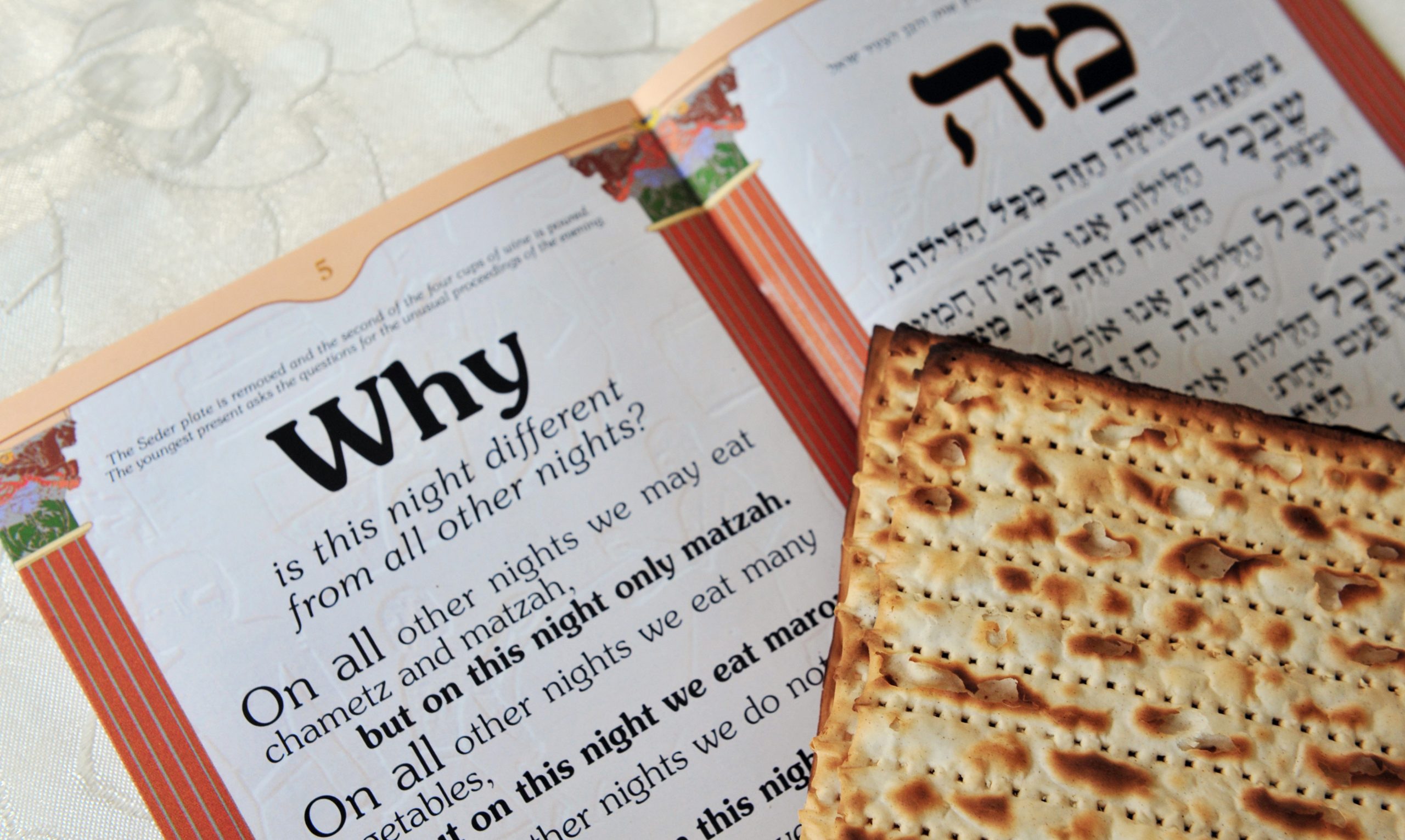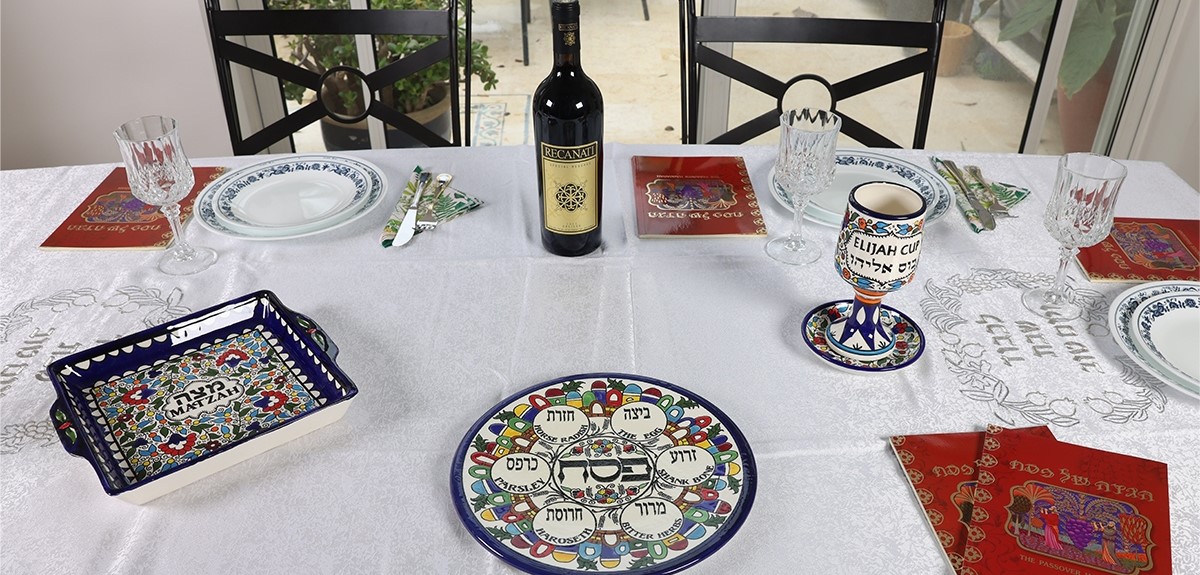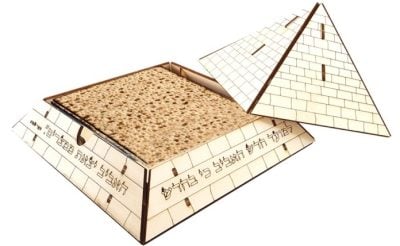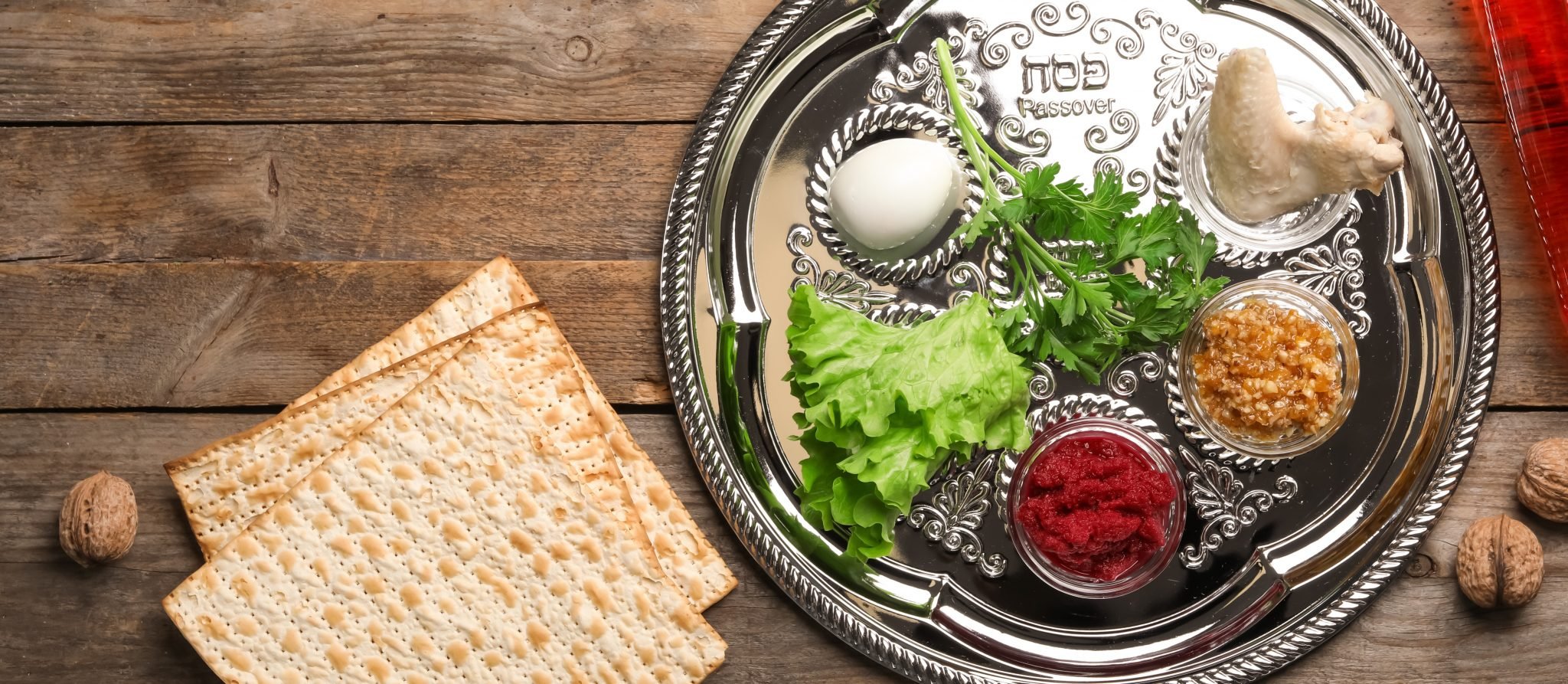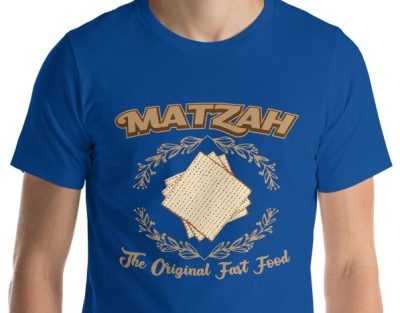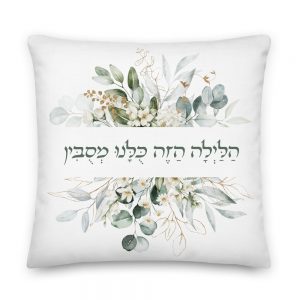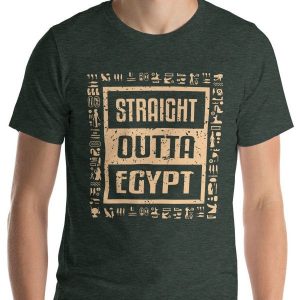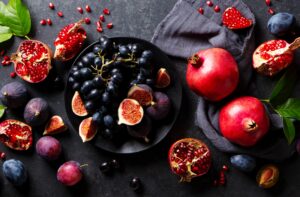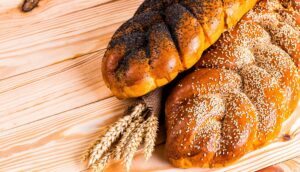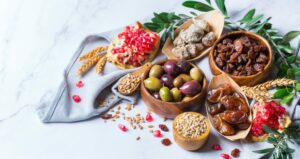Passover 2025 begins on Saturday night, April 12th at sundown, and lasts for eight days in the diaspora and seven in Israel. Jews all over the world will celebrate the first night of the holiday by gathering with friends and family for a Passover Seder.
During the Seder, we remember our enslavement in Egypt and journey to freedom by putting certain items on the Seder plate, eating symbolic foods, and reciting various traditional blessings. The Haggadah guides us through the 14 total parts of the Seder, but today, we are going to focus on the fifth one: Maggid, which is Hebrew for “narrate.”
Maggid is when we retell the Exodus story. It includes reciting the Ten Plagues, singing Dayenu, and one of the most beloved and well-known aspects of the Seder experience: Mah Nishtanah, or the Four Questions.
What are the Four Questions?
- On all other nights, we don’t dip vegetables in saltwater at all, but on this night, we dip twice?
- On all other nights, we eat chametz (leavened bread) and matzah, but on this night, we only eat matzah?
- On all other nights, we eat all kinds of vegetables, but on this night, we eat maror (bitter herbs)?
- On all other nights, we eat while upright or reclining, but on this night, we all eat while reclining?
What are the answers?
The next part of Maggiddoesn’t involve instantly answering these questions. Instead, we delve into retelling of the Exodus story. However, the questions are answered throughout the rest of the Seder.
We learn that we dip vegetables in saltwater to remember the tears of the enslaved Israelites and the hardships they endured.
During Passover, we only eat unleavened grains, like matzah, because the Israelites fled in such a rush that they didn’t have time to wait for their bread to leaven.
At the Seder, we eat maror (bitter herbs) to remember the bitterness of slavery.
And we recline during the Seder meal to embrace and celebrate our modern day freedom, because slaves were forced to stand.
Where does this tradition come from?
Like many of our holiday celebrations, the origin of Mah Nishtanah comes from the Talmud.
However, the original Four Questions in the Talmud were actually a bit different – included was the question, “Why is it that on all other nights we eat meat either roasted, marinated, or cooked, but on this night it is entirely roasted?” instead of the question regarding reclining.
The meat referred to is the Passover sacrifice that was traditionally brought to the Temple.
However, after the Temple’s destruction, rabbinical authorities decided to remove this question, and Maimonides later added the new question: “On all other nights, we eat while upright or reclining, but on this night, we all eat while reclining?”
What makes Passover so special?
Passover is a unique holiday in that our preparations and celebrations are so all-encompassing that they even involve physically preparing our home – cleaning, kashering or switching dishes, getting rid of chametz – as well as changing our diets for 8 days. This physical embodiment of the holiday is particularly heightened during the Passover Seder, as exemplified by the unusual rituals mentioned in the 4 Questions: dipping vegetables, eating matzah and bitter herbs, and reclining.
These physical aspects are meant to have us remember, and to some extent relive, the escape from slavery and journey to freedom of our ancestors – with the duality of the challenges and hardships as well as the sweetness.
The “Festival of Freedom” wouldn’t be possible without the bitterness of slavery and the “bread of our affliction” (as matzah is sometimes called), as the physical commandments of Passover remind us to this day.
No matter where you are, we hope you and your loved ones have a meaningful Seder and a Chag Sameach!
Don’t forget that you can still buy Passover-themed gifts from Israel, including fun decor and clothing and special presents for kids, to brighten up your holiday and the rest of the year.
Searching for the perfect Passover present for your child, grandchild, niece, or nephew? Look no further than our top 10 list straight from the Land of Israel!
